The curious allure of child preachers
- Published
Ezekiel Stoddard in action
An 11-year-old boy in the US has been ordained as a minister in his family's church, and also preaches at a number of local churches. He is the latest in a long history of American child preachers - so what is the appeal?
Ezekiel Stoddard's head pops up only just above the lectern as he stands to deliver his sermon.
He turns the pages of his notes with a flick of the hand and a flourish, and speaks quickly and insistently, punctuating his words with a regular "Amen" or "Hallelujah", as he hops from verse to verse.
He's 11 years old, but dressed like a gentleman.
"Are you ready?" he says a few minutes in, looking up at the crowd of eager faces. "I said 'Are you ready?'"
He repeats the question five times, before booming: "Are you ready for the resurrection of Christ?"
And with that his whirlwind of a sermon is over.
But the show goes on. Ezekiel moves over to join his older sister Corrine, 15, and brothers Hezekiah, 13, and Micah, seven, who - together with 10-year-old Jasmine - form the gospel group, God's Blessings, No Chains Holding Me Down.
Standing in line, in order of height, they sing, swing, and click their fingers.
It's fun, catchy, foot-tapping stuff, and the congregation at Christ Centered Missionary Baptist Church, in the east of Washington, DC, sway and clap to the beat.
Ezekiel is the frontman and, from time to time, breaks into a little rap.
Then the blessings begin.
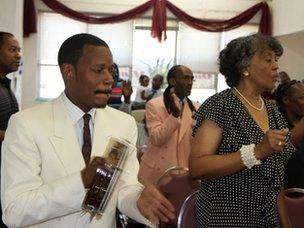
Music is an important part of the service
One by one, members of the congregation - anything up to seven times Ezekiel's age - bend down to his height, and whisper into his ear. Ezekiel commands the devil to leave, or calls for healing.
One woman hunches down and begins to sob for a few minutes, before clenching her fist and summoning the strength to get back up.
"He's a remarkable young man," says Rev Hercules S Jones, who invited Ezekiel to his church to preach. "When he delivers the gospel, it's inspiring."
And it brings in the crowds. When Rev Jones asks how many are visiting this week, around one-third of hands shoot up.
"I came to see him and I really loved it," smiles 39-year-old Raquel Hall. "I thought he was extraordinary."
"He is awesome," says Daisy Reed, a deaconess at the church, who brought three friends from her fitness class along, especially to see him.
"He's not showing any fear at all. He's just getting up there and doing what he has to do, being led by the Holy Spirit."
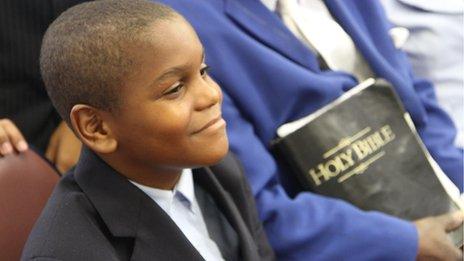
Ezekiel's mother and stepfather are both pastors, and two years ago set up their own church with white-painted brick walls, red curtains, flowers, and a sound-system so loud you can feel it pulse inside your chest.
And it was there, in the Fullness of Time Church in Capitol Heights, Maryland, that earlier this year, Ezekiel was ordained as a minister, and his brother, Hezekiah, a deacon.
"It was wonderful," says 13-year-old Hezekiah. "Everybody was applauding us, and when we got presented to the crowd, the whole crowd stood up and started rattling and clapping."
Micah, just seven years old, already has plans to follow in his brothers' footsteps.
"I started a sermon at home, and I typed it, and I think it's going to be good," he says in a little voice, adding that he will wait until he is 10 or 11 to deliver it.
The US is by no means the only country with child preachers - there is a thriving market for them in Brazil, external, for example, and Indonesia even has a controversial TV show , externalwhere young Islamic preachers compete.
The phenomenon is most likely to crop up among denominations which emphasise the power of the Holy Spirit and encourage lay participation, says Edith Blumhofer, an expert on the history of Christianity, based at Wheaten College in Illinois.
It is also likely to arise, she says, among sections of the population otherwise regarded as at the margins of society.
The 1920s and 1930s were the heyday for child preachers - historically-speaking we are "in a bit of a lull" right now, says Ted Lavigne, a retired minister, who is writing a book on the subject.
Lavigne has discovered about 500 examples so far, dating back as far as the 1700s. A handful of them are British child preachers from the late 1890s and early 1900s - but the vast majority are American.
"There is a dynamism to religion in America that I think is unmatched anywhere in the world - we are an incurably religious people," says Randall Balmer, chair of the religion department at Dartmouth College.
"I think the appeal of a child preacher is frankly the novelty of it," he says. "It's a kind of a carnival side-show."
Because the First Amendment bars state intervention in religion, this has created a kind of "marketplace of religion" in the US, which encourages popularism and entrepreneurialism, says Balmer.
"If you have a sort of gimmick or stunt, then you have an advantage."
There is very little regulation of US churches - just about anyone can establish a church and set their own rules.
Ezekiel's family's church is non-denominational, which gives them even more independence as they do not have to conform to any overarching rules on, for example, ordination.
But it is not difficult to find sceptics who say children this age are too young to be ordained, and too young to be preaching - and they point to cases where things have gone wrong.
Perhaps the most dramatic is that of Marjoe Gortner, the one-time child preacher, who decades later revealed he had never believed, and did it, first under pressure from his parents, and in later life, to make money.
A documentary film on his story was deemed too controversial to show in the southern Bible Belt when it came out in 1972.
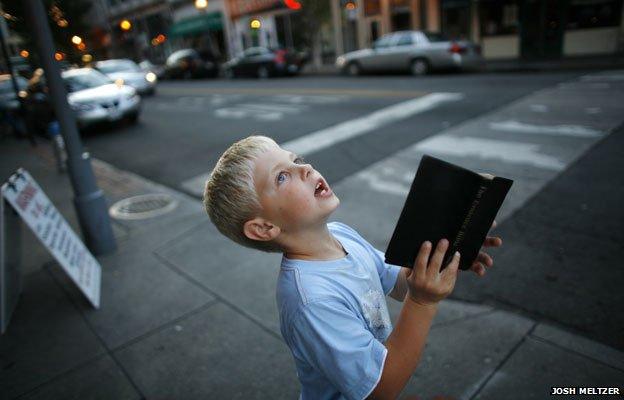
There are thought to be only a handful of child preachers in the US these days - Samuel Boutwell is one of them, and often takes his message to the streets
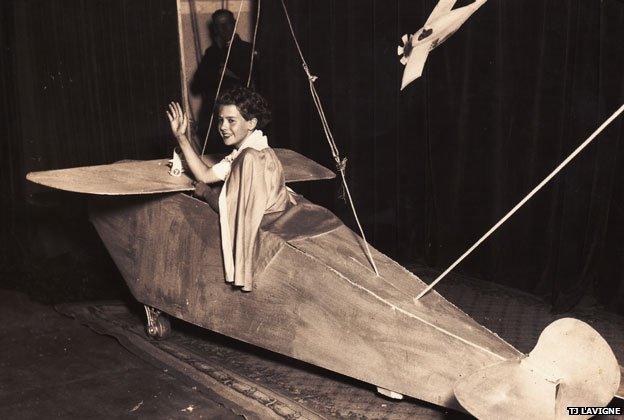
Child preachers were popular in the 1920s. Richard Headrick was known for his flamoyant entries
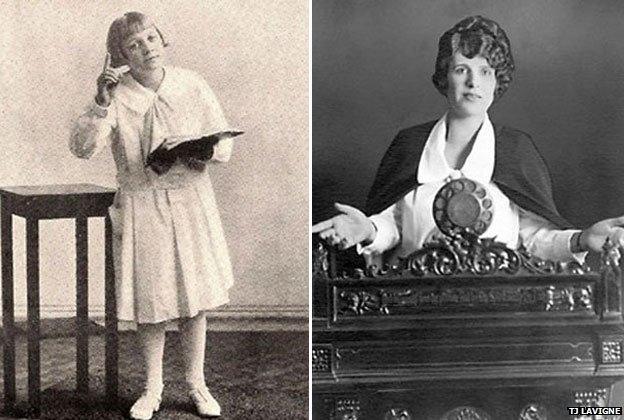
Evangelist Aimee Semple McPherson (r) inspired many young people to preach - including Uldine Utley (l)
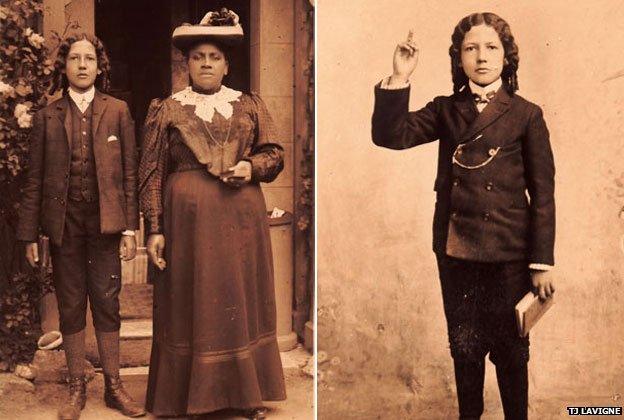
There were child preachers before this. Lonnie Lawrence Dennis preached in London and the US in the early 1900s. His mother was black and his father white
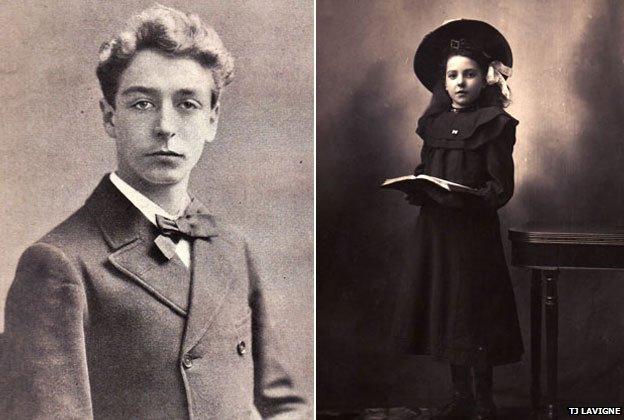
There were a handful in Britain at the time - including Jack Cooke and Frances Bradley Storr
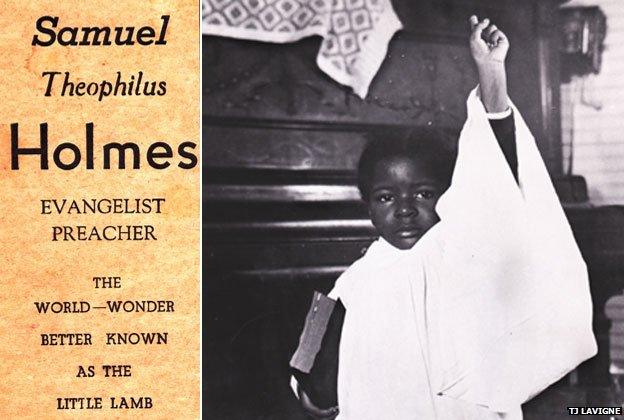
Some start very young - Samuel Theophilus Holmes who was four when he began preaching in 1948
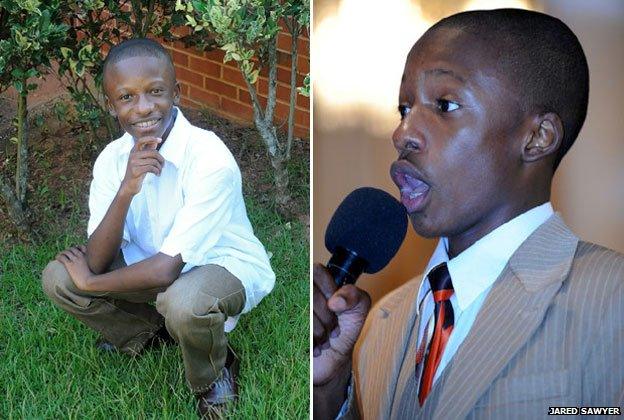
Jared Sawyer, 13, is another modern-day US child preacher
One of the most famous child preachers ever was a girl - Uldine Utley - who was a massive hit in the 1920s, travelling across the country preaching to crowds of thousands, before disappearing from public view, and eventually ending up in a mental institution.
"As an adult she really struggled - she never had the same appeal," says Edith Blumhofer.
Both women and children were often seen as "empty vessels" through which the word of God would be transmitted in a direct, unfiltered way, says Blumhofer.
"In these contexts, there is a certain purity associated with childhood... when she grew up, she was less interesting."
Ezekiel's family is acutely aware of the criticisms, and ready with their rebuttals - though sometimes they still sting.
"Does it hurt when people say something about my child? Because I'm a mum first, it really does," says Pastor Adrienne Smith.
But those who criticise Ezekiel have not met him, she says pointedly - they are "stereotyping" him "because of past histories".
She says her children are well-rounded, and do lots of "kids' stuff" too - like swimming, tennis, and horse riding. Ezekiel loves to play outside chasing lizards and grasshoppers.
He also spends up to two hours each day reading the bible. Sometimes Pastor Smith wonders where her son is, and finds him tucked away in a room on his own with the Bible, looking serious.
The children are home-schooled by their mother - the local public schools were too rough, she says, and not good learning environments.
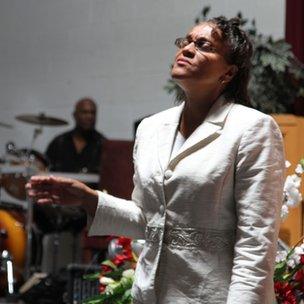
Ezekiel's mother is a pastor and set up a church together with her husband
Adrienne knows about the rough life - after being taken into care as a teenager, she finished school and funded her own way through college, all the while living in a homeless shelter, surrounded by drugs, pimping and prostituting.
"I finished high school and I cried on graduation day because everybody had their mum and their parents.
"I was crying, just standing there by myself - there was no family member there to hug me and say 'congratulations'."
This is the history that she is determined not to see a repeat of.
Adrienne is hugely proud of her children - you can see it written all over her face as she claps while they sing, or watches Ezekiel intently as he preaches.
"I'm in awe of him! It's like 'That's my boy!'" beams senior Pastor Vasconcellas Smith, stepfather to the children.
"I've cried with pride several times, and I do it openly - I don't care!"
Ezekiel has not decided what he wants to do as a job when he grows up. There is plenty of time to work it out, he says. But he has decided what kind of car he would like.
"I might have a Corvette, or I might have a Chevelle, it doesn't matter which type of car I get - I just know it's going to be a Chevrolet," he says, his eyes lighting up, and his voice full of animation.
"But for myself," he says, turning more serious and philosophical, "I just really want to stay in the word and continue preaching.
"Christians and believers, we should be the light of the world.
"In the salt, they take out the dark part, but leave the light part for you to eat - and I think we should be that light part."